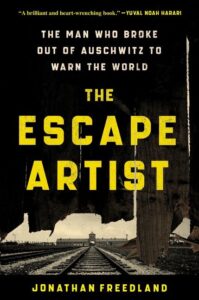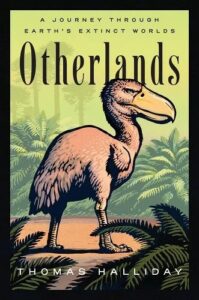
Meet the Writers on the Baillie Gifford Prize Longlist
Interviews with Some of Today’s Finest Writers of Nonfiction
The Barefoot Woman by Scholastique Mukasonga

How did you conduct your research?
The only resource I had to write this book about my mother was my own memory. What I brought together in the pages of The Barefoot Woman are memories of the childhood I lived alongside my mother Stéfania. It was in 1960 that my family, like so many others, was deported to Nyamata. I was three years old. All that we were promised, day in and day out, was death.
But our mothers promised us life, they promised us a future. Even if they themselves felt sure they wouldn’t escape the death they’d been promised (as was the case with Stéfania), they were determined to do all they could to let their children survive. Not only did Stéfania continually invent new hiding places for my sisters and me to take refuge from the recurring massacres; she also recreated, in our exile, a real village life made of conviviality and mutual aid among neighbors. I can still see Stéfania sitting in the place of honor on a termite mound, presiding every Sunday over a parliament of women.
In what ways has the 1994 genocide shaped modern Rwanda?
After the genocide of the Tutsis in 1994 (a hundred days, a million deaths), the country had to be rebuilt, which would require both justice and reconciliation. The victims and the brutalizers had to relearn how to live together. The government, like most of the population of Rwanda, immediately turned to that task; the first step was to abolish the ethnic identity card, inherited from the colonial era, which listed the so-called ethnic affiliation of every Rwandan. All the people of Rwandan speak the same language, Kinyarwanda, and recognize each other as simply Rwandans. Everyone has come together to pull the country from the ashes of the genocide. Rwanda’s economic success is astonishing, and many of the Africans I meet in my literary peregrinations consider it a model for all of Africa.
Rwanda’s borders were not laid out by the colonizers. Rwanda is an ancient kingdom whose oral traditions go back to the sixteenth century at least. The Hutu / Tutsi distinction designates not ethnic groups but social categories: farmers and cowherds. In a country where everyone speaks the same language and lives alongside each other, there can be no communities. Rwanda is one single nation.
The Escape Artist: The Man Who Broke Out of Auschwitz to Warn the World by Jonathan Freedland

How did you conduct your research?
I was lucky that Vrba left behind so many words: whether court testimonies or interview transcripts; long, handwritten letters or his own memoir written six decades ago. But I was luckier still to spend many hours speaking both to his widow, Robin Vrba, and to his first wife (and former childhood sweetheart) Gerta Vrbova, who I found living alone, aged 93, in Muswell Hill, north London. In what would be the last weeks of her life, Gerta and I sat in her garden during the Covid summer of 2020, as she told me of the boy she knew before Auschwitz—and the man he became.
Why do you think Vrba continued to run, even after the war?
He was a man who could not accept imprisonment in any form, whether his captors be the Nazis of Auschwitz or the rulers of postwar, communist Czechoslovakia. He believed it was obvious that he should be free. It’s also true that he was a man who struggled to conform, and who often ended up in conflict with the institution—or even country—where he found himself. He could not get along with the infant state of Israel where he lived for a short while in the late 1950s, just as he clashed with colleagues in the research job he held in 1960s London. And so he moved on. That was Vrba’s modus vivendi: if he reached a dead end, he simply found a way out.
Why do so few people know about Vrba today?
The book argues that Vrba was the teller of inconvenient truths. His Holocaust testimony did not paint a simple picture of evil Nazis pitted against a just and noble world. Instead, he pointed an accusing finger at the Nazis, of course, but also at those who had failed fully to act on, or pass on, his warning: that included the Allies, Churchill and FDR, and even specific Jewish leaders, especially in Hungary.
That made him an awkward witness, one who could not be relied on to tell a comforting tale—but one prone to descend into “accusations and rage”, to quote one colleague. The result is that people kept their distance: he did not become a media star or celebrated writer. Experts would seek him out for his almost unique expertise in the mechanics of the Auschwitz death camp, but he did not become famous. And so his story remained known only to specialist historians and the like. The Escape Artist seeks to correct that oversight, in the hope that Rudolf Vrba might perform one last act of escape—that he might escape our forgetfulness, and be remembered.
Otherlands: A Journey Through Earth’s Extinct Worlds by Thomas Halliday

How did you conduct your research?
I researched Otherlands through the scientific literature, mostly. I’d start with a list of organisms known from a site and work out what stories could be told that linked together under a single ecological theme to be explored in that chapter. Once I’d settled on a few organisms to focus on, I’d fill in the rest of the story, making sure to (once again) find justifications in the literature for choices about behaviors, details of the environment, and so on. Much of the experiential aspect comes from having been in various types of environment myself, and where that was lacking, I’d read others’ accounts of traveling and living in, say, polar landscapes, or watch videos of lahars, to get a sense of what things actually would feel like.
What do you hope people will gain from this glimpse into our planet’s past?
In short, I think the answer is perspective. Earth has been home to millions of species and an uncountable number of different ecosystems. Almost all those species and ecosystems share one thing—they are gone. Life is persistent, but the specifics of how that life exists at any one time can be very fragile. The past teaches us that when you get major changes to the environment or climate, change is rapid and radical, and loss is permanent. We have evolved in an icehouse world, and should be very concerned about the prospect of the changes we are bringing to the climate and environment that have supported us since we emerged only a couple of million years ago.
How difficult is it to write about a world that existed long before humanity came into existence?
I have an advantage over historians in writing about the past—I do not have to worry about intent. Culture complicates matters, having to interpret whether an object has ritual or functional significance, or figuring out the perspective from which a manuscript was written. In biology, while evidence can often be interpreted in different ways, the differences are often more prosaic. As for reconstructing the worlds as a whole, the revolution in palaeobiology that has allowed us to discover ever more information about past ecosystems means that a lot of the work is done for you by the scientists—it’s just a case of translating the academic writing and bringing it together into a cohesive whole.












